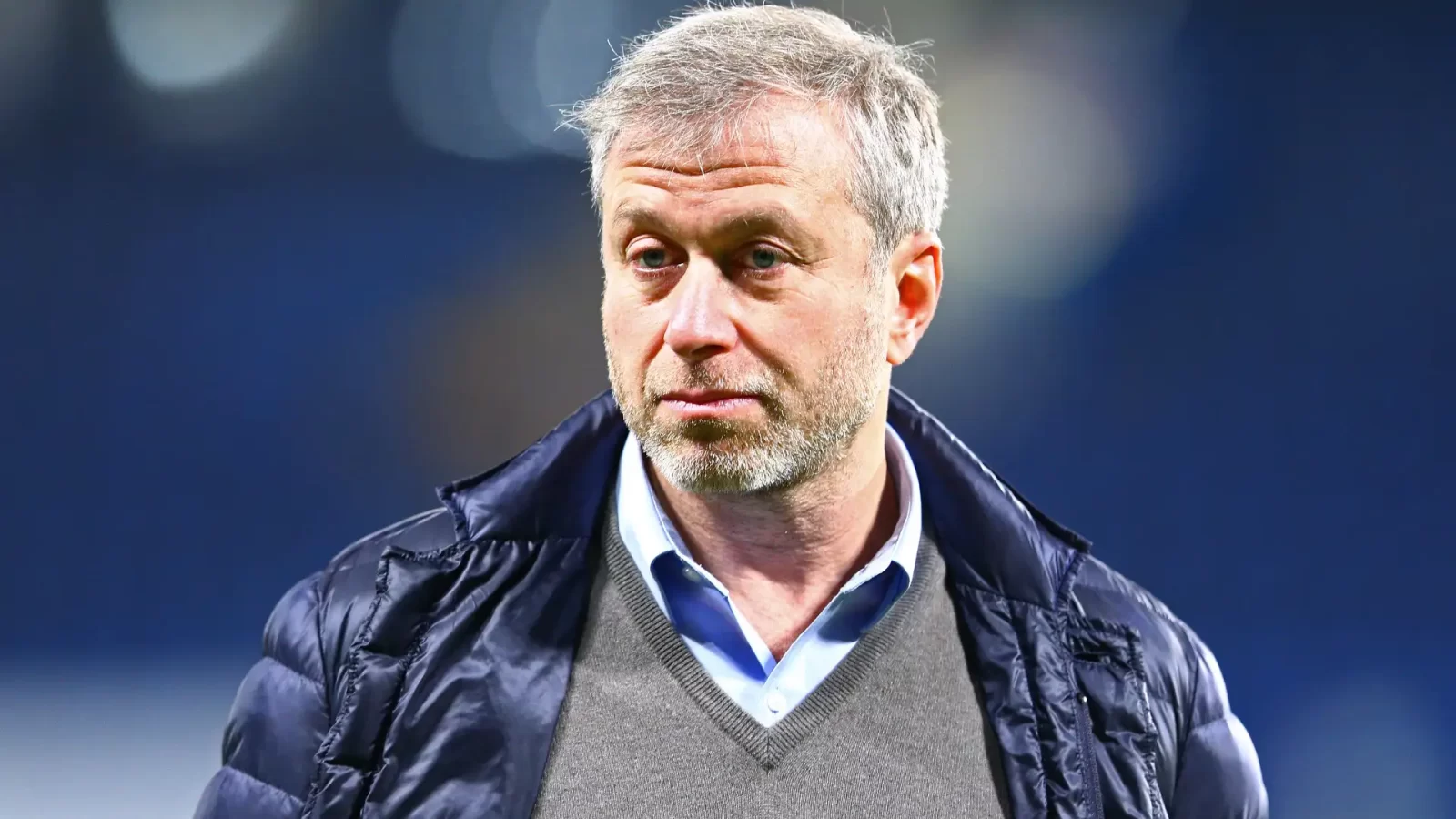- Home
- Billionaires
- Investing Newsletters
- 193CC 1000
- Article Layout 2
- Article Layout 3
- Article Layout 4
- Article Layout 5
- Article Layout 6
- Article Layout 7
- Article Layout 8
- Article Layout 9
- Article Layout 10
- Article Layout 11
- Article Layout 12
- Article Layout 13
- Article Layout 14
- Article Sidebar
- Post Format
- pages
- Archive Layouts
- Post Gallery
- Post Video Background
- Post Review
- Sponsored Post
- Leadership
- Business
- Money
- Small Business
- Innovation
- Shop
Recent Posts
Roman Abramovich: The Tycoon Who Shaped Modern Business and Football

Roman Abramovich, a name synonymous with wealth, power, and influence, has carved an extraordinary path in the worlds of business, sports, and philanthropy. Born on October 24, 1966, in Saratov, Russia, Abramovich rose from humble beginnings to become one of the most influential figures in global industry and one of the wealthiest individuals in the world. His story is one of resilience, ambition, and strategic brilliance.
Abramovich faced a challenging start in life. Orphaned at the age of two, he was raised by relatives in northern Russia. Despite these early hardships, he displayed a remarkable entrepreneurial spirit from a young age. While studying at the Ukhta Industrial Institute and later at the Moscow State Auto Transport Institute, he began dabbling in small businesses, laying the groundwork for his future ventures.
The fall of the Soviet Union in the early 1990s marked a turning point for Abramovich. Amid the massive privatization wave that reshaped Russia’s economy, he made his first fortune in the oil industry. Teaming up with Boris Berezovsky, Abramovich acquired a controlling interest in Sibneft, an oil company, at a fraction of its value during the controversial loans-for-shares program. Under his leadership, Sibneft grew into one of Russia’s largest oil producers, cementing his status as a billionaire and a key player in the country’s business elite.
Abramovich’s success extended beyond oil. Over the years, he diversified his investments across various industries, including aluminum, steel, and real estate. As one of the original “oligarchs,” he navigated Russia’s volatile post-Soviet economic landscape with remarkable acumen, becoming a trusted ally of President Vladimir Putin while maintaining a relatively low political profile compared to some of his peers.
In 2003, Abramovich made a move that would elevate his global profile and forever change the face of football: he purchased Chelsea Football Club. At the time, Chelsea was struggling both financially and on the pitch. Abramovich invested heavily in the team, bringing in world-class players, managers, and infrastructure. His ambitious vision and willingness to spend significantly transformed Chelsea into one of Europe’s most successful football clubs, winning numerous Premier League titles, FA Cups, and the UEFA Champions League.
Abramovich’s tenure at Chelsea not only redefined the club but also reshaped the football industry. His investment model, which combined financial support with a focus on building a strong team culture, set a precedent for other wealthy owners in the sport. The “Abramovich era” at Chelsea is often credited with ushering in a new age of big-money ownership in football.
Beyond sports, Abramovich has demonstrated a deep commitment to philanthropy. He has donated billions of dollars to charitable causes, particularly in Russia and Israel. His contributions include funding education, healthcare, and cultural initiatives. Abramovich’s philanthropy extends to disaster relief efforts, where he has provided aid during crises, and his investment in Jewish cultural and religious organizations has further underscored his commitment to supporting communities.
Despite his many successes, Abramovich’s career has not been without controversy. His involvement in the loans-for-shares program and his rapid accumulation of wealth during Russia’s privatization era have drawn criticism. Legal disputes with former business partners and questions about his close ties to the Kremlin have also cast a shadow over his achievements. However, Abramovich has consistently maintained that his success is the result of strategic investments and a commitment to long-term growth.
In recent years, Abramovich has focused on more sustainable and forward-thinking ventures. He has invested in clean energy technologies and startups working on innovative solutions to global challenges. His portfolio now includes stakes in renewable energy companies, technology firms, and cutting-edge research initiatives. This shift reflects a broader trend among billionaires seeking to align their wealth with efforts to combat climate change and promote sustainability.
Abramovich’s personal life has also been a subject of public interest. He has been married and divorced multiple times, and he is the father of seven children. Despite his wealth and high-profile ventures, Abramovich is known for maintaining a relatively private lifestyle. He owns a collection of luxurious assets, including superyachts, private jets, and lavish properties worldwide, yet he rarely seeks the spotlight.
In 2022, Abramovich faced one of his most significant challenges yet. Following Russia’s invasion of Ukraine, he found himself at the center of international sanctions targeting Russian oligarchs. His assets were frozen in several countries, and he was forced to sell Chelsea Football Club. This marked the end of an iconic chapter in football history. However, Abramovich’s resilience and adaptability suggest that he will continue to find new ways to remain influential on the global stage.
Roman Abramovich’s life is a testament to the power of vision, strategy, and determination. From a small-town orphan to a billionaire businessman and global influencer, his journey is as remarkable as it is complex. He has left an indelible mark on industries ranging from oil to football and continues to shape the world through his investments and philanthropy.
As the world evolves, so does Abramovich. His ability to adapt to changing circumstances, embrace innovation, and maintain a forward-looking perspective ensures that his legacy will endure for generations to come.
- Abramovich biography
- Abramovich era
- Abramovich legacy
- Adaptability
- Aluminum Industry
- Billionaire
- business strategy
- charitable contributions
- Chelsea FC success
- Chelsea Football Club
- clean energy investments
- Controversy
- cultural initiatives
- disaster relief
- education funding
- Entrepreneur
- football industry
- football ownership
- football revolution
- football transformation
- Global influence
- global investor
- healthcare funding
- Innovation
- Jewish organizations
- loans-for-shares
- luxury assets
- luxury lifestyle
- Oil Industry
- Philanthropic efforts
- Philanthropy
- post-Chelsea era
- post-Soviet Russia
- Premier League
- private jets
- privatization
- Real Estate
- Renewable Energy
- Resilience
- Roman Abramovich
- Russian business
- Russian oligarch
- Sibneft
- sports investment
- superyachts
- sustainable ventures
- technology investments
- UEFA Champions League
- Vladimir Putin
Recent Posts
Categories
- 193cc Digital Assets2
- 5G1
- Aerospace & Defense46
- AI37
- Arts3
- Banking & Insurance11
- Big Data3
- Billionaires462
- Boats & Planes1
- Business328
- Careers13
- Cars & Bikes76
- CEO Network1
- CFO Network17
- CHRO Network1
- CIO Network1
- Cloud10
- CMO Network18
- Commercial Real Estate7
- Consultant1
- Consumer Tech180
- CxO1
- Cybersecurity68
- Dining1
- Diversity, Equity & Inclusion4
- Education7
- Energy8
- Enterprise Tech29
- Events11
- Fintech1
- Food & Drink2
- Franchises1
- Freelance1
- Future Of Work2
- Games141
- GIG1
- Healthcare78
- Hollywood & Entertainment186
- Houses1
- Innovation42
- Investing2
- Investing Newsletters4
- Leadership65
- Lifestyle11
- Manufacturing1
- Markets20
- Media193
- Mobile phone1
- Money13
- Personal Finance2
- Policy567
- Real Estate1
- Research6
- Retail1
- Retirement1
- Small Business1
- SportsMoney33
- Style & Beauty1
- Success Income1
- Taxes2
- Travel10
- Uncategorized8
- Vices1
- Watches & Jewelry2
- world's billionaires431
Related Articles
Eric Smidt: The Visionary Behind Harbor Freight Tools
Eric Smidt, the co-founder, and CEO of Harbor Freight Tools, is a...
By 193cc World's BillionairesDecember 23, 2024Charles Schwab: The Pioneer of Discount Brokerage
Charles Schwab is a name synonymous with revolutionizing the financial services industry....
By 193cc World's BillionairesDecember 23, 2024Azim Premji: The Philanthropic Tech Tycoon
Azim Premji is one of the most admired and respected business leaders...
By 193cc World's BillionairesDecember 23, 2024John Malone: A Visionary Media Mogul
John Malone is a name that resonates throughout the global business world,...
By 193cc World's BillionairesDecember 23, 2024













Leave a comment